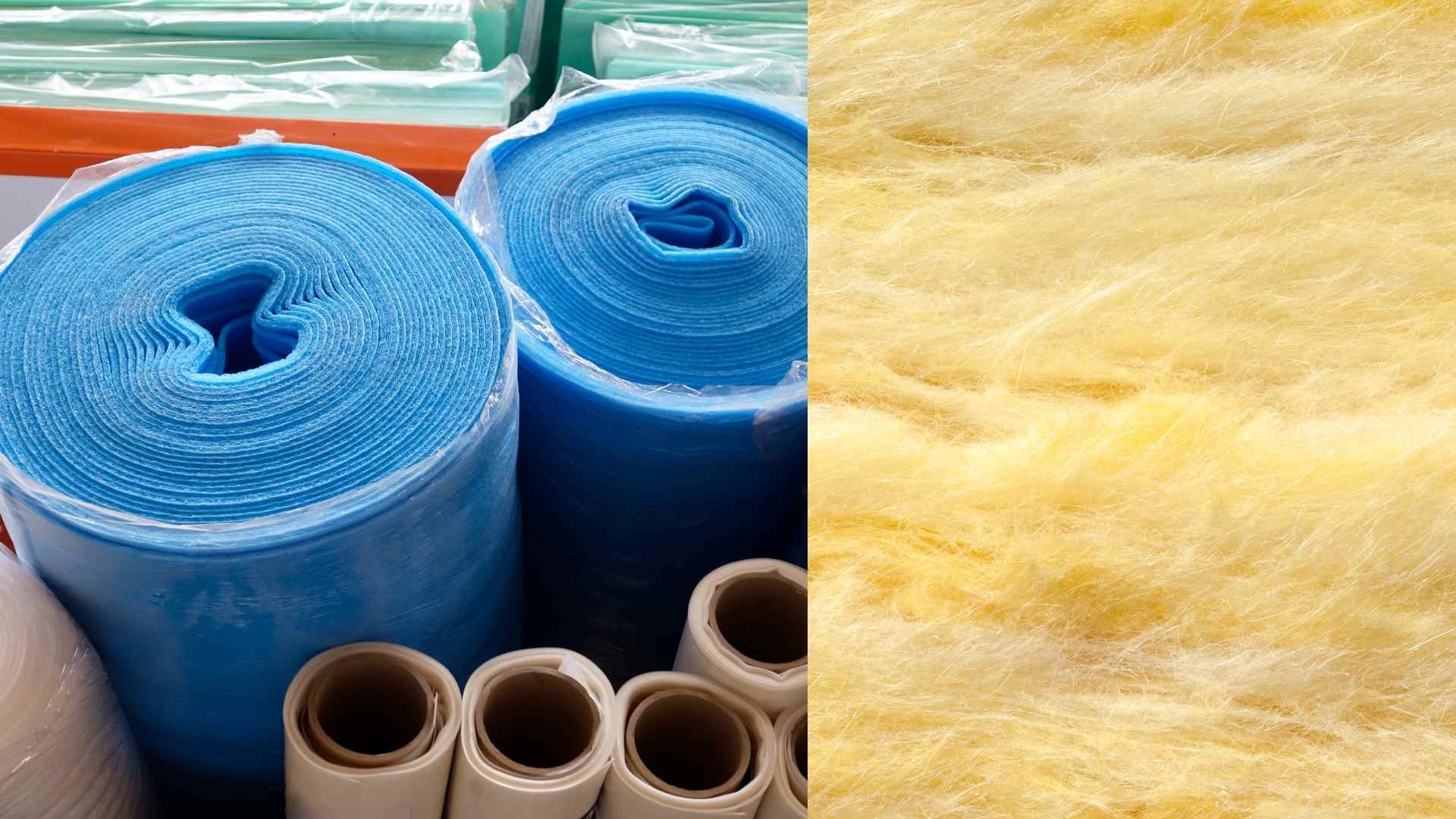
Choosing the right insulation for your home is crucial for energy efficiency, comfort, and safety. Both glass wool and polyester insulation offer unique benefits, but they also come with certain trade-offs that can impact your home’s thermal performance, fire safety, and overall indoor air quality. By understanding the differences between these two materials, you can make an informed decision that suits your needs, budget, and environmental priorities.
What Is Glasswool Insulation?
Glasswool, also known as fibreglass insulation, is a widely used option in residential and commercial buildings. It is made from recycled glass and sand, which are melted and spun into fine fibres. These fibres create millions of tiny air pockets that help to trap heat, making glasswool an excellent thermal insulator.
How is it made?
The production process involves melting recycled glass with sand at high temperatures, then spinning it into fibres. This structure allows glasswool to be both lightweight and effective in resisting heat transfer. It is also non-combustible, providing additional fire safety benefits for homes.
What Is Polyester Insulation?
Polyester insulation, often made from recycled plastic bottles, is known for its ease of handling and user-friendliness. This type of insulation is non-toxic and non-irritating, making it a preferred choice for those with allergies or sensitivities. It’s a popular option for DIY installations due to its softer, dust-free nature.
How is it made?
Polyester insulation is created by melting down recycled plastics and extruding them into fibres. These fibres are then bonded into batts or rolls that can be easily installed in walls, ceilings, and floors. The result is a material that provides good soundproofing and moderate thermal insulation.
Insulation Performance Comparison: Thermal Conductivity, R-value, and Soundproofing
- Thermal Conductivity & R-Value: Glasswool generally provides a higher R-value compared to polyester insulation of the same thickness, which means it can resist heat flow more effectively. This makes glasswool a more cost-effective choice if thermal performance is your priority.
- Soundproofing: Polyester insulation excels in acoustic insulation, making it a good choice for noise reduction between rooms. Its denser structure helps to absorb sound waves, which can improve indoor comfort in busy households.
Durability and lifespan comparison
Both types of insulation are durable, but their performance can differ over time. Glasswool can last the lifetime of a building when properly installed, though it may lose effectiveness if it absorbs moisture. Polyester is highly moisture-resistant, making it less prone to issues like mould and rot, which can enhance its longevity in damp environments.
Environmental impact comparison
Both materials can contribute to energy savings and lower carbon footprints, but their manufacturing processes differ. Glasswool is often made with up to 80% recycled glass, making it an eco-friendly choice.
Polyester, made from recycled plastics, is fully recyclable and less likely to release airborne fibres during installation, which makes it a greener option in terms of indoor air quality.
Costs
Glasswool is typically more affordable than polyester insulation, which can make it a more accessible option for those on a budget. However, the bulkier nature of polyester can increase shipping costs, especially for remote areas, potentially adding to the overall expense.
Factors To Consider When Choosing Glass Wool or Polyester Insulation
When deciding between glasswool and polyester insulation, consider factors like your budget, thermal performance needs, and the specific requirements of your home environment. If fire resistance and high R-value are priorities, glasswool might be the better choice. For homes where ease of handling, moisture resistance, and a dust-free environment are more critical, polyester could be ideal.
Ultimately, both types of insulation can significantly improve the comfort and energy efficiency of your home. Consulting with a professional installer can ensure you select the best material for your specific needs and conditions.
